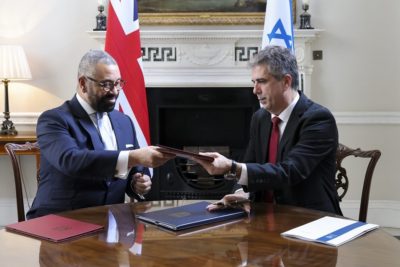The concerted effort to increase the power of the military across society must be challenged
ForcesWatch comment

As support for the military is paraded in streets across the UK at Armed Forces Day events, politicians charged with fighting the military’s corner are waging their own war on public and political opinion.
The public row between Defence Secretary Gavin Williamson and Downing Street over defence spending has caused many to question his political judgement but his calls have been backed by other parts of the defence establishment. The House of Commons Defence Committee last week pre-empted the Modernising Defence report of inquiry due next month with a demand for ‘beyond 2%’.
Williamson’s unwillingness to wait for that report is partly because the UK’s contributions to global defence objectives will be discussed at the NATO summit in July. Donald Trump’s repeated ‘requests’ for hundreds more British troops in Afghanistan is also likely to be on the agenda.
The government is reported to be reluctant to capitulate to these demands. Chancellor Philip Hammond is said to have told ministers that with further money needed for the NHS, the budget cannot withstand increased spending on defence.
MAIL On Sunday: “Give Me £20bn Or I’ll Bring You Down” #bbcpapers #tomorrowspaperstoday pic.twitter.com/s8dmSEroe8
— Allie Hodgkins-Brown (@AllieHBNews) June 23, 2018
Williamson has threatened to bring Theresa May down if defence does not get an extra £20 billion. In his desperation to win more assets he recently suggested that without them, Britain may be forced to use its nuclear deterrence in future battles. At the same time, there is a ‘tug-of-war’ between those who want smaller, tech focused forces (mainly in Whitehall) and those who do not want to let go of the means of conventional warfare.

These current tensions are put into context in a new report by Professor Paul Dixon. ‘Warrior Nation: War, Militarisation and British Democracy’ explores how the military’s conduct around defence issues since Iraq and Afghanistan has played out ‘on the home front’.
Dixon explores how, as a result of the unpopularity of the UK’s wars of choice in the Middle East, various actors – including politicians, the media and military elites – have promoted military interests within civil society and politics to the extent that there has been a ‘militarisation offensive’. This has enhanced the military’s power in society while not succeeding in dramatically increasing public acceptance of UK involvement in armed conflict.
The report also describes how the military pushed for greater involvement in Iraq and Afghanistan, believing that they must ‘use or lose’ their assets and that active warfare would increase their resources and personnel.
Dixon suggests that we should all be concerned about the effect of this heightened power of the military on democracy. The constitutional convention that they do not openly criticise politicians has been broken with public attacks on successive governments since 2006. A week after Corbyn’s election to Labour leader, a ‘senior serving general’ publicly said the armed forces would take ‘direct action’, ‘effectively a mutiny’, to stop a Corbyn government – using ‘whatever means possible, fair or foul.’
This influence has also created a pressure to conform within Labour’s defence team. Their 2017 general election manifesto embraced the target of spending 2% of GDP on defence. The shadow Defence Secretary, Nia Griffiths, criticises the government for its ‘shocking failure to recruit and retain armed forces’, but fails to recognise that lavish spending on conventional defence equipment and nuclear deterrence is unlikely to fix these problems.
The less fixable truth is that, as society changes, insufficient numbers of young people are enlisting, and the armed forces’ own surveys show that a high proportion of serving personnel are dissatisfied with life in the forces.
Ironically, and as Dixon charts in his report, as traditional solutions to defence and security issues become less effective, the military’s battle for hearts and minds increases at home. The ‘Filling the Ranks’ report by former defence minister Mark Francois calls for a cross-departmental response to the recruitment problem, escalating it to the scale of a national crisis. He also recommends putting the armed forces on the curriculum and encouraging cadets to enlist, despite the MoD’s continued insistence that armed forces activities in schools are not about recruitment and that the cadets are just a youth work programme.
Armed Forces Day is the most visible example of how military interests are being promoted ever more widely. The celebration was established in 2009 in a bid to increase the popularity of the armed forces. Along with the military covenant it is a tradition which, as Dixon says, has been ‘invented’ for the military to gain power and prestige.
With hundreds of events around the country facilitated by local authorities to generate a public display of support to serving personnel, veterans and their families, military institutions can bask in the reflected glory with the knowledge that they have harnessed many parts of civil society to promote their interests.
This harnessing takes the form of written pledges of support between the armed forces and public authorities and civil society organisations. Every single local authority in Great Britain has signed the Armed Forces Community Covenant, pledging not only to improve access to services for the armed forces community, but also to promote generic public support for them.
Over 2000 businesses and organisations, including many education institutions have signed the corporate version of the Covenant. Alongside pledging support for ‘military ethos’ and cadets in schools, and events such as Armed Forces Day, these organisations are enabling and facilitating more extensive recruitment of reserve forces from within their own employees or, in the case of organisations like the Department for Work and Pensions, from their clients in job centres.
We’re pleased to have signed the Armed Forces Covenant and are proud to support the Armed Forces community. Find out more about some of the measures we’ve introduced – https://t.co/ueTtj3ftXs #ArmedForces pic.twitter.com/r7bMk5GRrv
— Skipton Building Society (@skiptonbs) June 30, 2018
Inevitably recruitment also plays a significant part of Armed Forces Day events with children encouraged to handle lethal weapons and play on military vehicles. At the Norfolk Show this week, not explicitly a military event, the armed forces set up a ‘military village’ next to the kids funfair.

In the military village (next to the kids funfair) at the Norfolk Show 2018. Photo: ForcesWatch
The interest sparked in a child as a result will be worked on over the years during the extensive programme of recruitment and awareness-raising activities that the armed forces now operate within schools and communities.
As we reported last year, the costs to local taxpayers and communities facing cuts elsewhere for this militarised ‘family entertainment’ are significant. Last year’s national event in Liverpool cost £226,000, with the city council paying out £62,000 (FOI available on request). This year the national event is being held in Llandudno, north Wales, and is expected to cost £375,000 (FOI available on request). 65% of this expenditure is coming from Welsh Assembly or local finances despite recent announcements about cuts to the budgets of both the Welsh Government and Conwy County Borough Council.
The MoD contributes only £25,000, or 6%, of funding, despite being the key director and beneficiary of the event.
The Welsh employer General Dynamics, and BAE Systems are also sponsoring the Llandudno event. These companies are the sixth and fourth largest producers of arms and military services worldwide. Helping to finance wider military interests in the community is a very small price to pay for another chance to legitimise their own activities.
The clearly concerted effort to increase the power of the military across society must be challenged – in our political structures, in our schools and communities and in the public space and imagination. Whether or not we want to live in a more militarised society, and the consequences of doing so, must become a topic for public debate.

BAE Systems are one of two arms company sponsors of the national Armed Forces Day event in 2018 in Llandudno . Photo: ForcesWatch
See more photos from Armed Forces Day 2018 in Llandudno here
See more: military in society, recruitment, Armed Forces Day, ForcesWatch, Warrior Nation
Like what you read?
> Sign up for our newsletter or blog notifications
> Support our work – from just £2 a month










